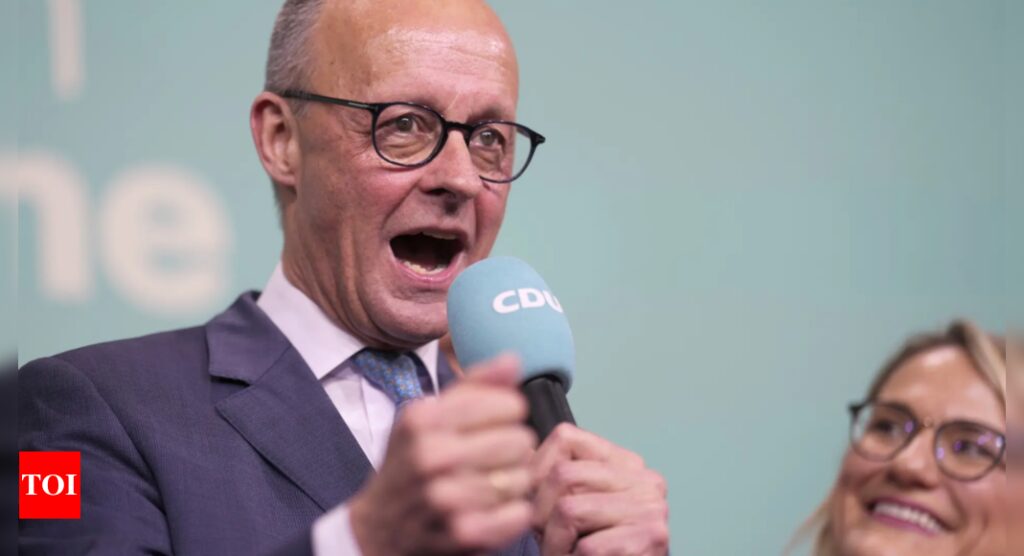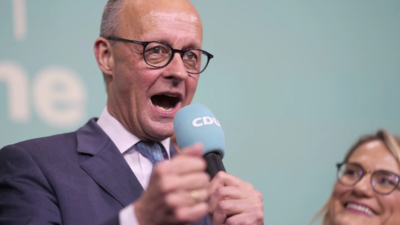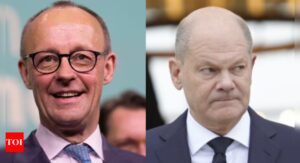German conservatives to win with 28.5% of votes: Exit polls

Germany’s opposition conservatives won the national election on Sunday, putting leader Friedrich Merz on track to be the next chancellor while the far-right Alternative for Germany came in second, its best ever result, exit polls showed. Following a campaign roiled by violent attacks, and interventions by US President Trump’s administration, the conservative CDU/CSU bloc won 28.5% of the vote, followed by AfD with 20%, an exit poll by ZDF public broadcaster showed.
Chancellor Olaf Scholz’s SPD tumbled to their worst result since World War II, with 16.5% of the vote share, according to the ZDF exit poll.
Greens were on 12% while FDP hovered around the 5% threshold to enter parliament. A late campaign surge by far left Die Linke party gave it 9% of the vote while breakaway leftist party BSW got 5%.
The results set the stage for protracted coalition talks and likely mean a three-way coalition made up of one or two of the three parties that were part of Scholz’s unpopular alliance that fell in Nov.
Merz, 69, has no previous govt experience but has promised to provide greater leadership than Scholz and to liaise more with key allies, restoring Germany to the heart of Europe. A brash economic liberal who has shifted the conservatives to the right, he is considered the antithesis of Angela Merkel, who led Germany for 16 years. Short of a majority in an increasingly fragmented political landscape, however, his conservatives will have to sound out partners to form a coalition. Those negotiations are certain to be tricky after a campaign which exposed sharp divisions over migration and how to deal with AfD in a country where far-right politics carry a particularly strong stigma due to its Nazi past.
That could leave Scholz in a caretaker role for months, delaying urgently needed policies to revive Europe’s largest economy after two consecutive years of contraction and as companies struggle against global rivals. It would also create a leadership vacuum in the heart of Europe even as it deals with challenges including Trump threatening a trade war and attempting to fast-track a ceasefire deal for Ukraine without Europe.
Germany’s conservatives will do everything they can to form a govt capable of taking action as quickly as possible, Merz said Sunday. “Tonight we will celebrate and from tomorrow we start working,” he said in a first reaction in Berlin. “The world out there is not waiting for us.”
Scholz, meanwhile, conceded defeat after what he called “a bitter election result.” AfD’s Alice Weidel said “we have become the second-strongest force.” She said her party is “open for coalition negotiations”, and that “otherwise, no change of policy is possible in Germany.”agencies








